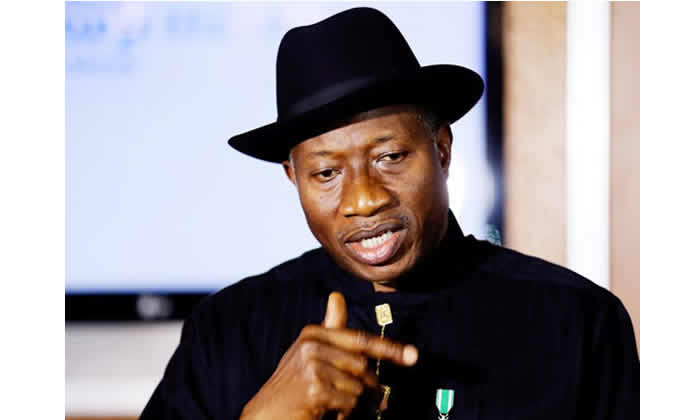Former Nigerian President Goodluck Jonathan has called for urgent electoral reforms in the country, emphasising that ‘ghost voters’ are undermining the integrity of the voting system.
Speaking at the YIAGA Africa Reflection Conference on Democratic Elections in West Africa in Abuja on Tuesday, February 25, Jonathan said Nigeria’s electoral process would continue to face credibility challenges unless the country appointed leaders with integrity to oversee elections.
According to the former president, the involvement of ‘ghost voters’ — individuals who do not exist or are fraudulently registered — is one of the key reasons the nation struggles to produce accurate vote counts during elections.
He argued that for Nigeria to achieve credible elections, the officials managing the Independent National Electoral Commission (INEC) must demonstrate a commitment to ethical leadership.
“We must have credible people, If the people in charge of INEC are under pressure to manipulate elections, they should be ready to resign. If you are appointed to oversee elections in Nigeria and you cannot resist such pressure, then you should leave rather than compromise democracy.” Jonathan stated.
He warned that if the electoral system continued to be managed by individuals willing to bend under political pressure, the country would never see the meaningful reforms needed to ensure free and fair elections.
Jonathan went on to criticise the regionalisation of the electoral process, arguing that it plays a destructive role in shaping voting patterns and distorting the democratic process.
“When the electoral process is too regionalised, it undermines the objective of electing capable leaders. We need a system where people can vote based on the credibility of candidates, not on regional or religious affiliations,” he said.
While acknowledging that the introduction of technology — such as the Bimodal Voter Accreditation System (BVAS) and the Results Viewing Portal (IReV) — aimed to improve transparency, Jonathan noted that the 2023 elections were marred by logistical issues, technical glitches, and delays in voting.
He drew comparisons with other West African countries, such as Ghana, Liberia, and Senegal, where despite limited technological deployment, elections were conducted more smoothly, with higher voter turnout and peaceful transitions of power.
The former president also highlighted recent challenges in Sierra Leone and Senegal, where allegations of voter intimidation, ethnic tensions, and controversial results had affected the credibility of the elections.
By contrast, Ghana’s electoral commission, in collaboration with security agencies, ensured a peaceful and transparent election, despite the country’s limited use of technology.
READ ALSO: 2027: We didn’t give Jonathan presidential ticket – PDP
He praised Liberia for its peaceful transition of power, following a closely contested runoff, and observed that the example set by the nation should serve as a model for other countries in the region.
“In Liberia, the willingness of the incumbent to concede defeat demonstrates the strength of democracy,” Jonathan said.
Jonathan warned that the deployment of technology in elections, while beneficial, cannot replace the human element of integrity in the process.
“Countries like Nigeria, where more technology has been introduced, still face legal battles and political tensions after the elections, This underscores the importance of human will in ensuring the success of any electoral system.” he observed.
The former president called for stronger electoral institutions and a commitment to reforms across the West African sub-region.
“Democracy must be allowed to work for the people,” he said, calling for a system where voter registration is more efficient, elections are credible, and leaders are chosen based on merit.
In his keynote address, former INEC Chairman Prof. Attahiru Jega also reflected on the challenges facing democratic development in West Africa.
Jega highlighted the persistence of political interference in the appointment and removal of electoral officials, as well as efforts to obstruct legal reforms that could strengthen electoral oversight.
Jonathan’s remarks echoed a broader regional sentiment, with leaders and citizens urged to strengthen governance and embrace democratic values such as tolerance, inclusion, and peaceful coexistence.
A Call for Reform and Resilience
Jonathan’s comments come at a crucial time for Nigerian democracy, as the country continues to grapple with the aftermath of the controversial 2023 elections and seeks to rebuild trust in its electoral institutions.
Both Jonathan and Jega’s reflections on the importance of ethical leadership within INEC highlight the ongoing challenges to Nigeria’s democratic consolidation.
As Jonathan noted, “If our systems for electing leaders are not fine-tuned, then what is the point of democracy?”
It is clear that for democracy to truly thrive in Nigeria, as in much of West Africa, the integrity of electoral processes must be upheld, and citizens must demand fair elections that are free from manipulation.



